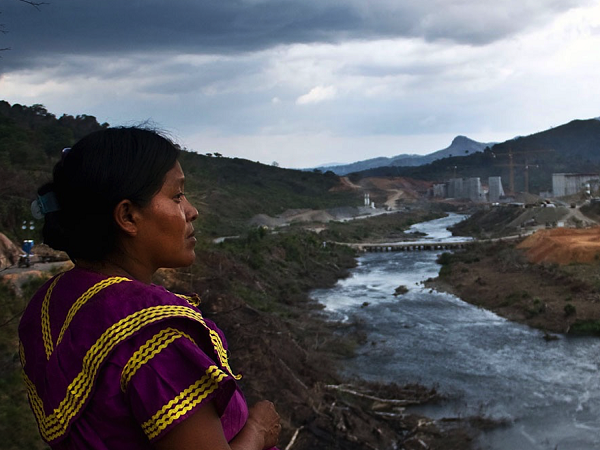First published on 12/19/2018, and last updated on 12/21/2018
By Holly Jonas, International Policy Coordinator
Indigenous peoples and local communities are both the first and the last lines of defence against threats to their collective territories and areas, particularly from industries such as agribusiness, mining and infrastructure. They face intimidation, harassment, criminalisation, physical attacks and even murder for standing up against unwanted activities that harm both their communities and territories and the nature on which we all depend. These existential threats have both individual and collective human rights dimensions and concern the full range of economic, social, cultural, civil and political rights.
In response to requests from our Members and Honorary members to focus more explicitly on tackling such threats, we worked with the membership from 2017-2018 to develop a policy and a preliminary action plan on “Defending Territories of Life and Their Defenders”. The policy was adopted at the ICCA Consortium’s XIIIth General Assembly (Bishoftu, Ethiopia, November 2018), coinciding with the 20th anniversary of the adoption of the UN Declaration on Human Rights Defenders. It will be available online in January 2019 after undergoing final revisions to the text and French and Spanish translations. The preliminary action plan will be further developed with the membership (if you would like to provide inputs, please contact the International Policy Coordinator, Holly Jonas).
Under this policy, the ICCA Consortium, with all its means and capacities and in collaboration with strategic allies and partners, will strive to:
(a) Actively defend ICCAs—territories of life from harm, particularly from externally driven natural-resource intensive activities, in full concert and solidarity with their custodian indigenous peoples and local communities;
(b) Actively support and defend custodians and defenders of territories of life and stand in solidarity with them as they assert and secure their rights and responsibilities to govern, manage and conserve their territories and areas, including those who wish to independently self-declare their territories and areas as “no go” areas for certain harmful activities and/or in relevant registries and databases;
(c) Enhance the capacities of its Members to recognise and stand up to threats and harms to territories of life and their defenders, including by facilitating access to practical mechanisms and tools to secure their rights, continue their work without interference and harm, monitor compliance, and seek redress and justice in the case of violations;
(d) Highlight and demonstrate how ICCAs—territories of life embody sustainable self-determination and livelihoods, including by providing alternatives to the mainstream economic systems that threaten and harm territories of life and their defenders with impunity, and promote worldviews and systems that support territories of life in their entirety; and
(e) Advance global, national and local systems of rights and responsibilities and foster enabling policy and legal environments in support of territories of life and their defenders, including through multiple complementary forms of legal and non-legal recognition and support.
The ICCA Consortium is in the process of forming a voluntary working group to coordinate and oversee this policy and action plan, with representatives of Members from the different regions to ensure it responds directly to their needs. In light of our capacities, we intend to carry out the work in close collaboration with partner organisations, networks, social movements and related initiatives, as appropriate.
In parallel with developing the policy, we have been reaching out to other organisations and networks to better understand the civil society and intergovernmental landscape and explore potential partnerships. Examples include:
- Joining the Defending the Defenders Coalition, participating in the first Coalition planning meeting in Mexico City and arranging separate meetings with Coalition members (such as Front Line Defenders, Global Witness and Environmental Law Alliance Worldwide).
- Raising awareness about environmental defenders in the UN Convention on Biological Diversity (2017-2018), including in side events and oral statements during negotiations.
- Tracking the consideration of environmental human rights defenders in the UN system, including through Special Rapporteurs, UN Environment’s Environmental Rights Initiative and policy on environmental defenders, and the UN General Assembly’s high-level plenary meeting in December 2018 on human rights defenders, during which the UN Secretary-General delivered a statement that recognised “Indigenous peoples defending their lands, traditions and the environment” first in a list of individual and collective human rights defenders.
- Tracking the initiatives of other non-profit organisations and alliances working to support collective efforts of Indigenous peoples and local communities to defend their Territories of Life, including EarthRights International (see: “Fighting Back: A Global Protection Strategy for Earth Rights Defenders”), Protection International (see: “Collective Protection of Human Rights Defenders: A collective approach to the right to defend human rights”) and the action plan of the Human Rights Defenders World Summit 2018 held in November.
